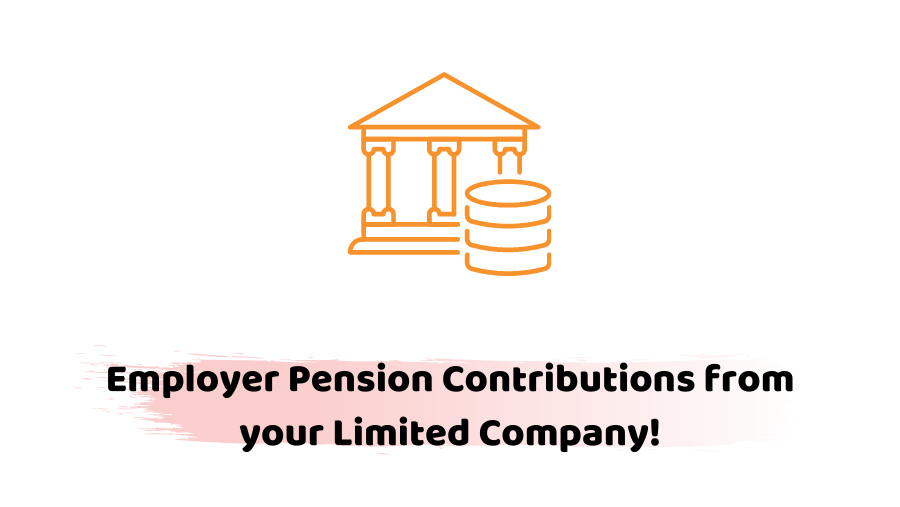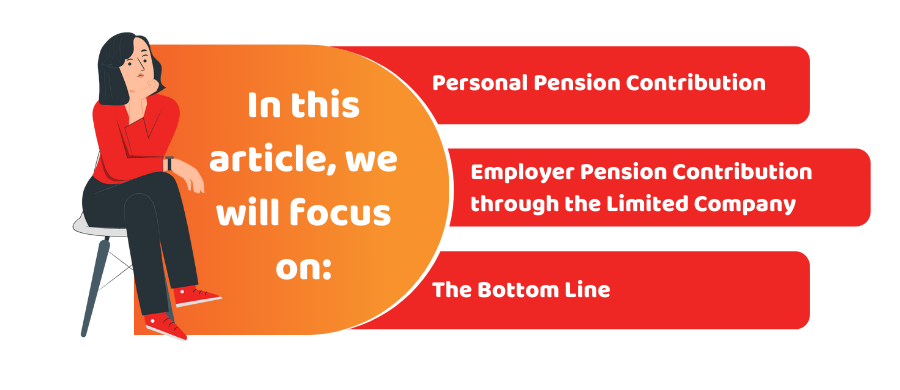If you own a limited company, it is an advantageous idea to make contributions to a pension. This will help you to bring tax benefits as it will allow being treated as allowable expenses in your business and will benefit you at the time of your corporation tax bill. It is possible even if you carry out your own business of any sort. It is your choice if you want to make personal contributions to a pension or you can make employer pension contributions through your company as well.
For easy execution, you need to have a plan that will help to make an easy contribution be it personal or through your company. You will get tax benefits in both ways. To find out the right choice for yourself, you need to have a clear analysis of your business circumstances. However, here in this article, we will discuss tax implications for both options. This includes the following:
- Personal Pension Contribution
- Employer Pension Contribution through the Limited Company
- The Bottom Line
Interested in ACCOTAX – Accountants in London? Why not speak to one of our qualified accountants? Give us a call on 02034411258 or request a callback. We are available from 9:00 am – 05:30 pm Monday to Friday.
Personal Pension Contribution:
If we talk about personal pension contribution, tax relief is given to you that will also explain the rate of tax you are paying. This can also mean that as a basic taxpayer you can be paying £100 in order to save £125 as a pension amount. This is important to know that there is no limit to making a contribution to your pension. The amount is totally your choice. The current rule for pension amount can go up to 100% of your earnings, the maximum amount can go up to £40,000.
People who earn less than the amount of £3,600 within a year or they may earn less than this are allowed to contribute to an extent of £3,600 which is the tax relief limit.
Get an instant quote based on your requirements online in under 2 minutes, Sign up online or request a callback.
Personal Pension Contribution as Director:
If you own a limited company and as a director, you are getting the salary and the dividends both. The case of contribution to pensions will be different. Since the dividends are not taken as your UK earnings so your pension tax relief limit will depend on the amount of your salary only.
Some of the directors who are making low income and taking a good amount of dividends should not try to exceed the pension limit, this can result in extra tax charges.
For the purpose of enjoying the most out of pension contribution, a director with low income can struggle to increase salary or make contributions through the company. This is possible as an employer contribution.
Can’t find what you are looking for? why not speak to one of our experts and see how we can help you are looking for.
Employer Pension Contribution through the Limited Company:
As mentioned above the option is open to making pension contributions straight through your company. We consider employer contribution like an allowable expense of business. The company will receive corporation tax relief. So in this way, the company will receive 25% of the saving on the amount of contribution.
Allowable rules must be followed in order to make the contribution a seamless working. By the rules, we understand that the contributions should be made with the intention of business growth. In order to prove this to HMRC, solid shreds of evidence are asked as well.
Moreover, the employer is getting the benefit of not paying the national insurance. the current rate is 13.8%. So this is another way to increase your savings by 13.8%.
Let us manage your practice from A to Z. We’ll take care of everything on your behalf.
The Bottom Line:
Now that you have developed a better understanding of employer pension contribution and personal pension contribution, we can sum up the discussion by saying that if you own a limited company, as a director the best option is to pay straight through the company to get the most benefit out of of the pension contribution.
Looking for all-inclusive monthly packages? Let us take care of your affairs so that you can focus on your business.
Disclaimer: This article intends to provide general information based on employer pension contributions.






















































